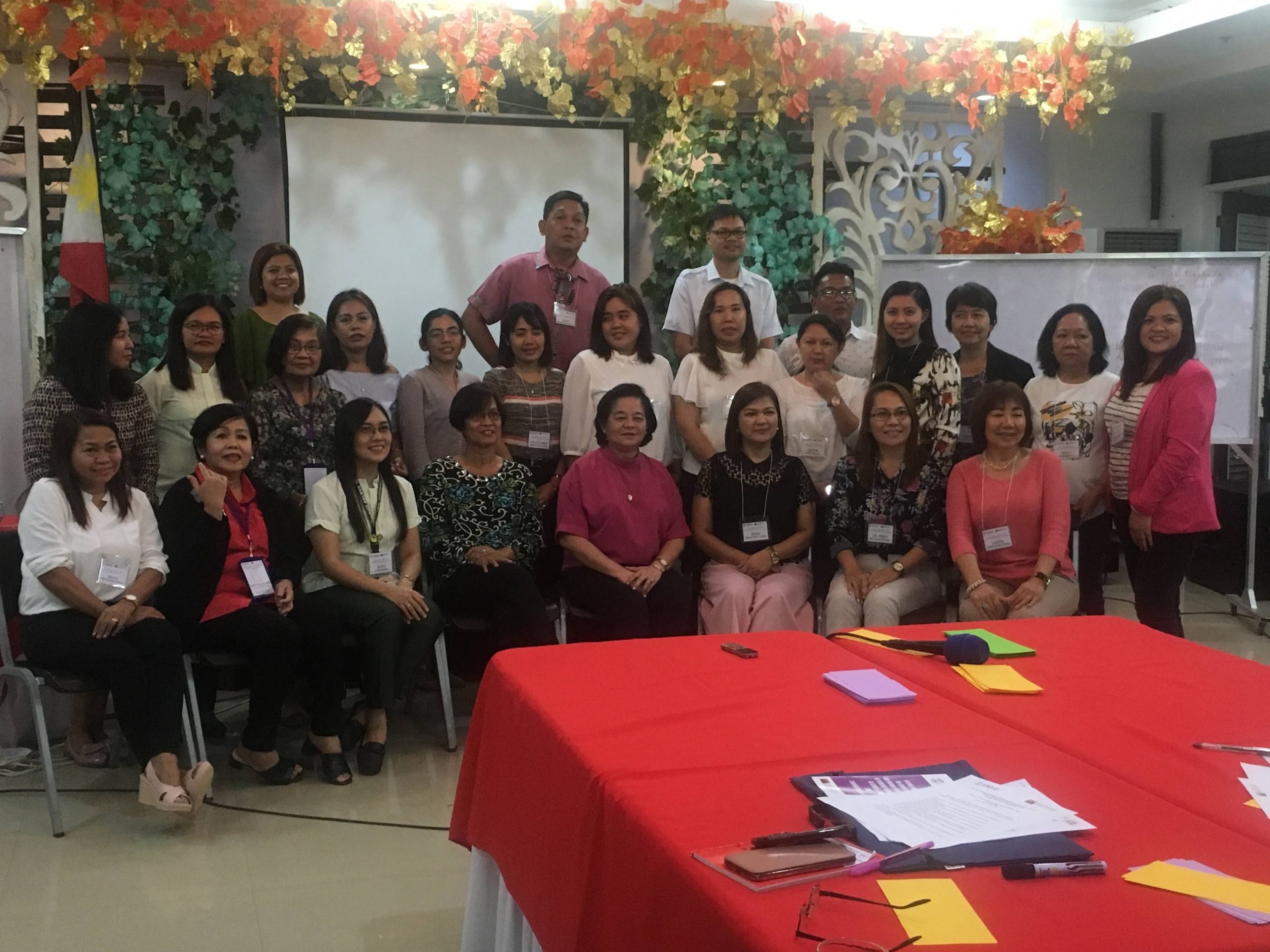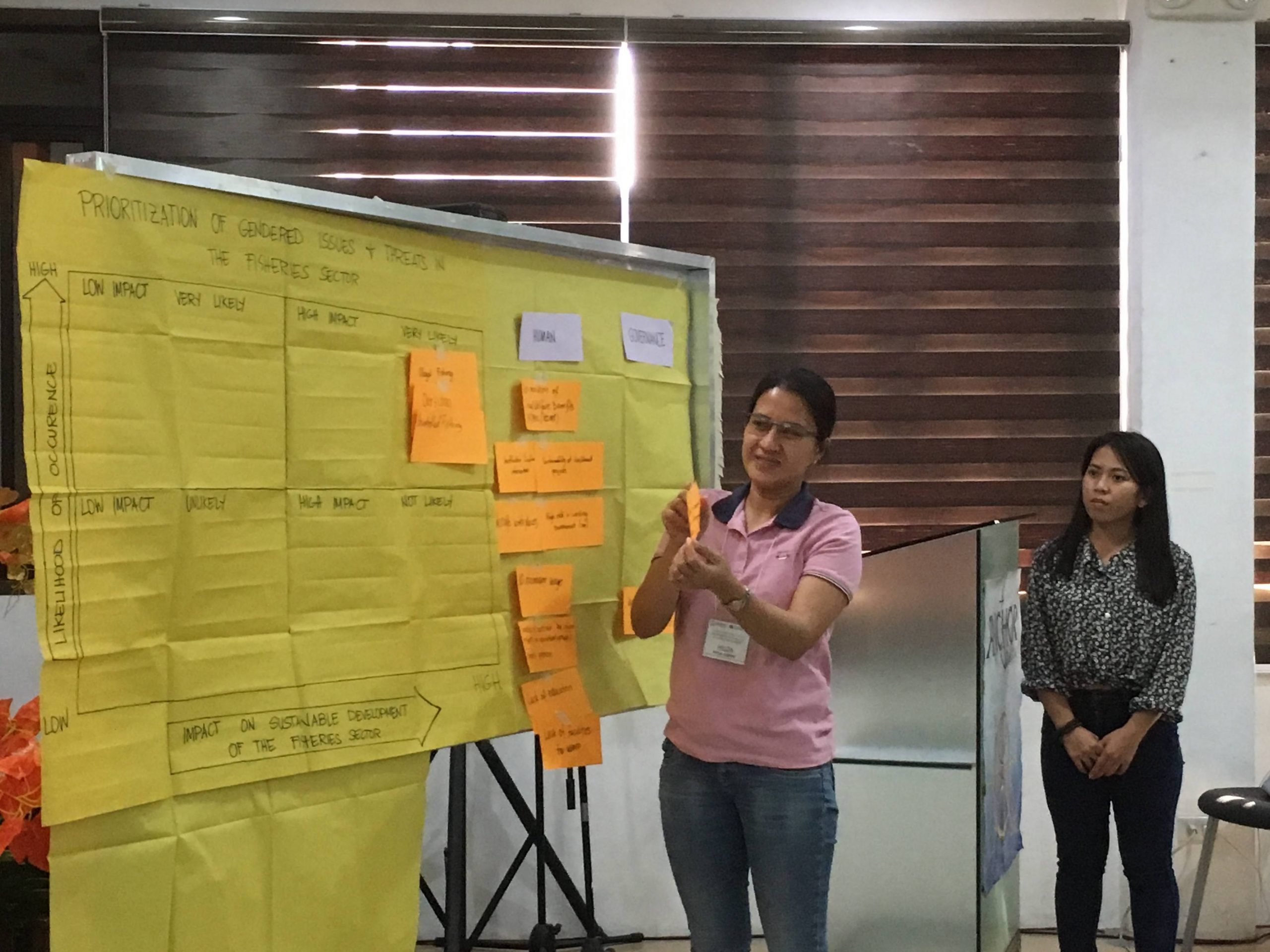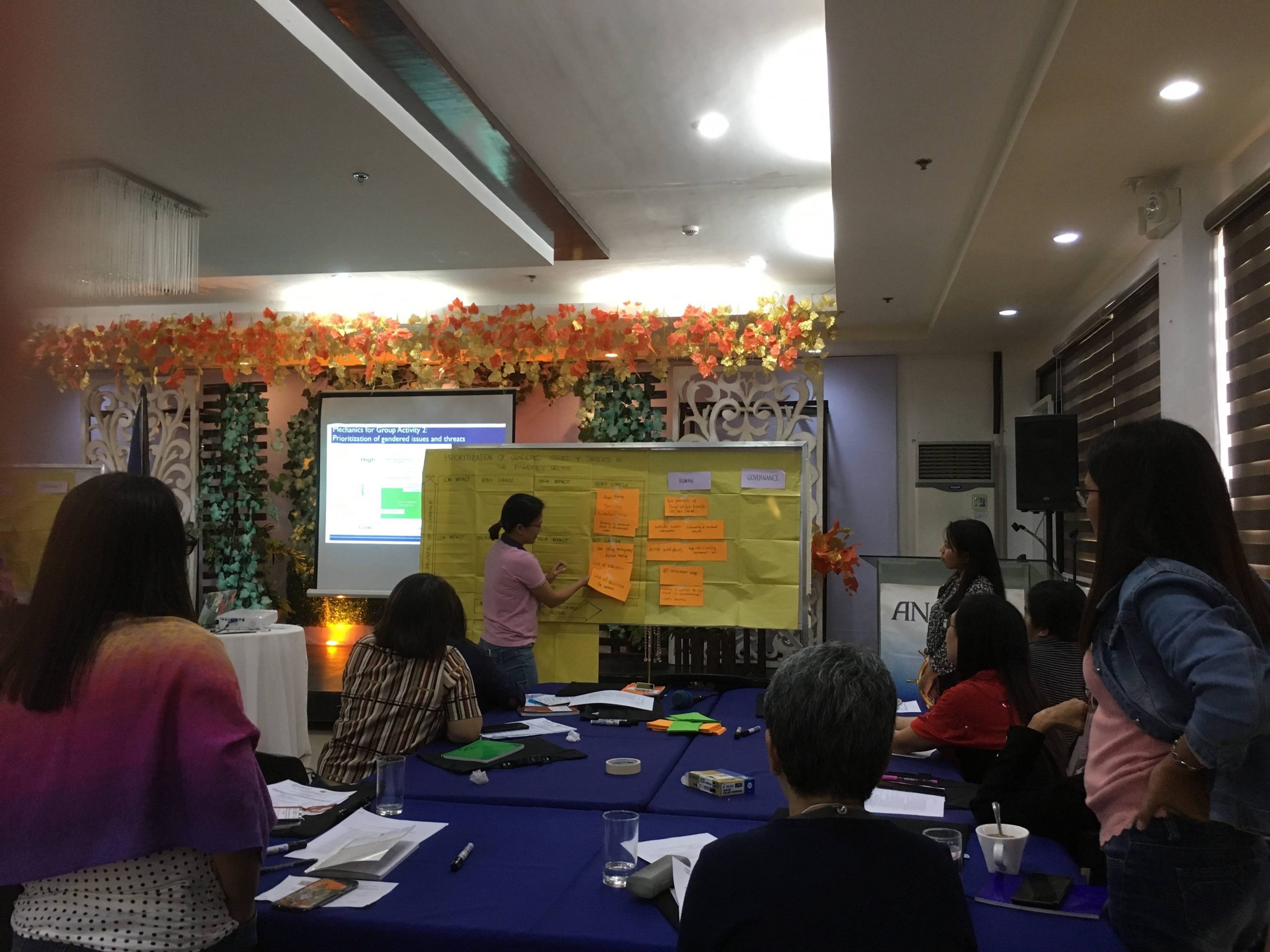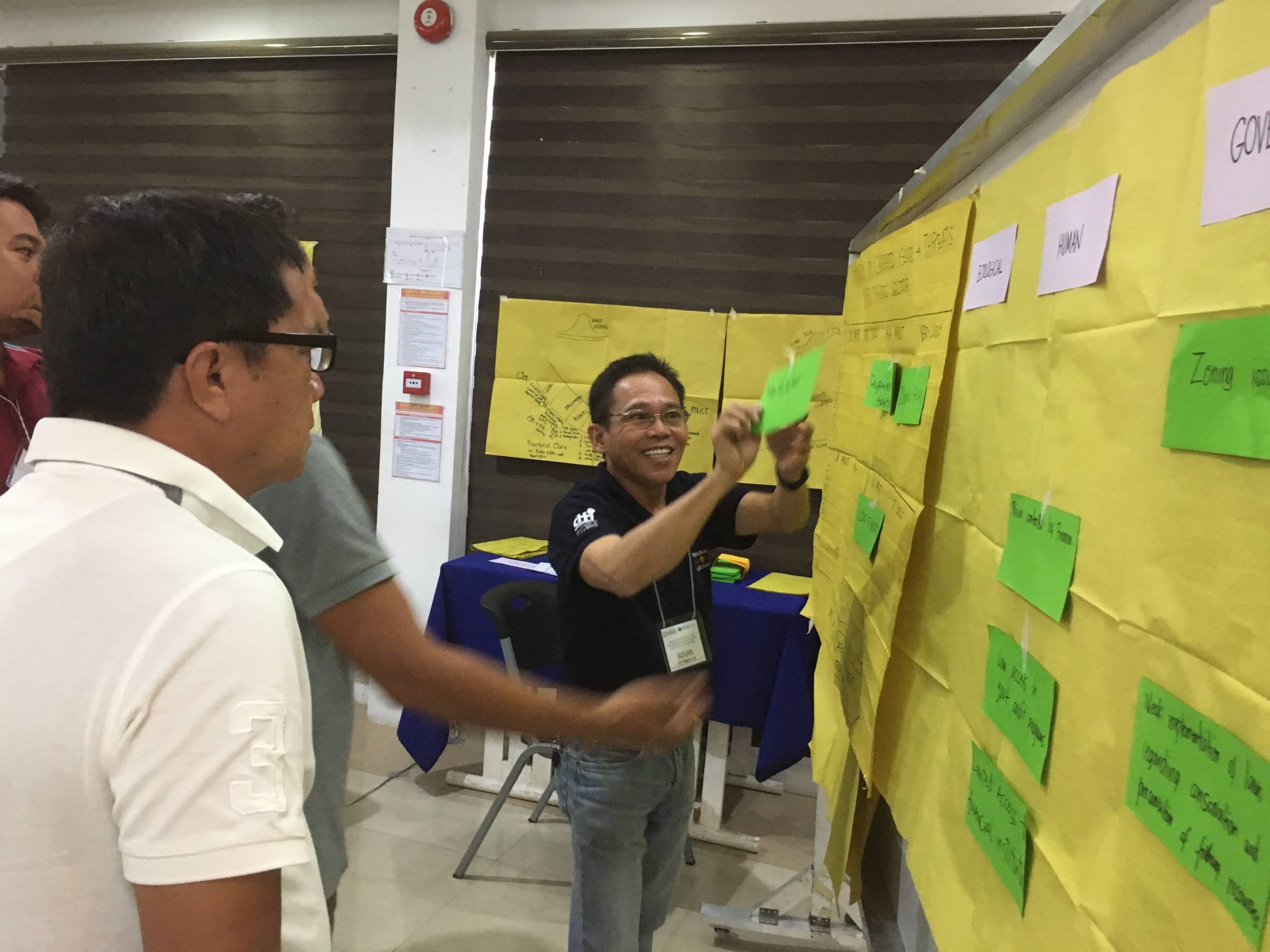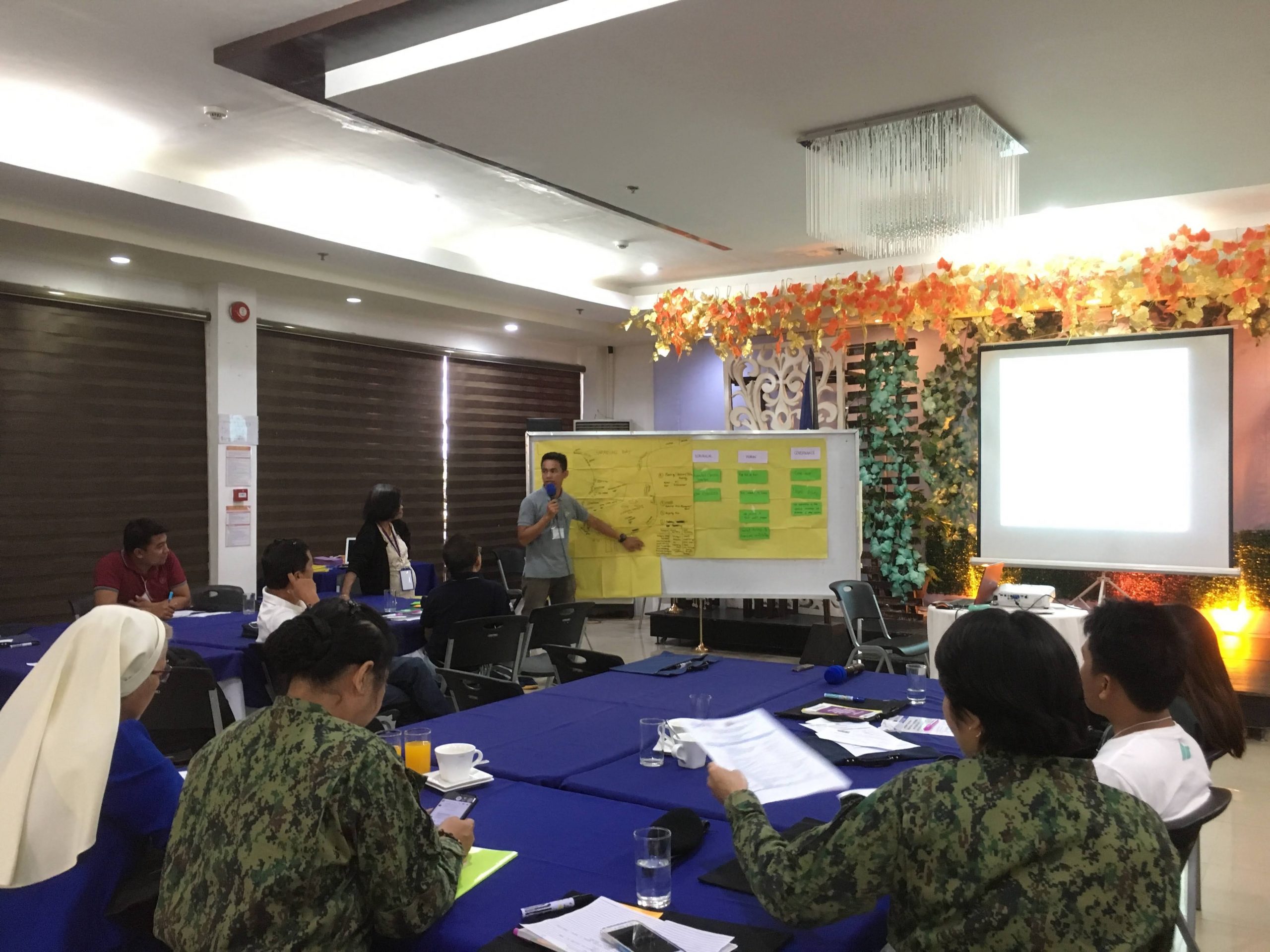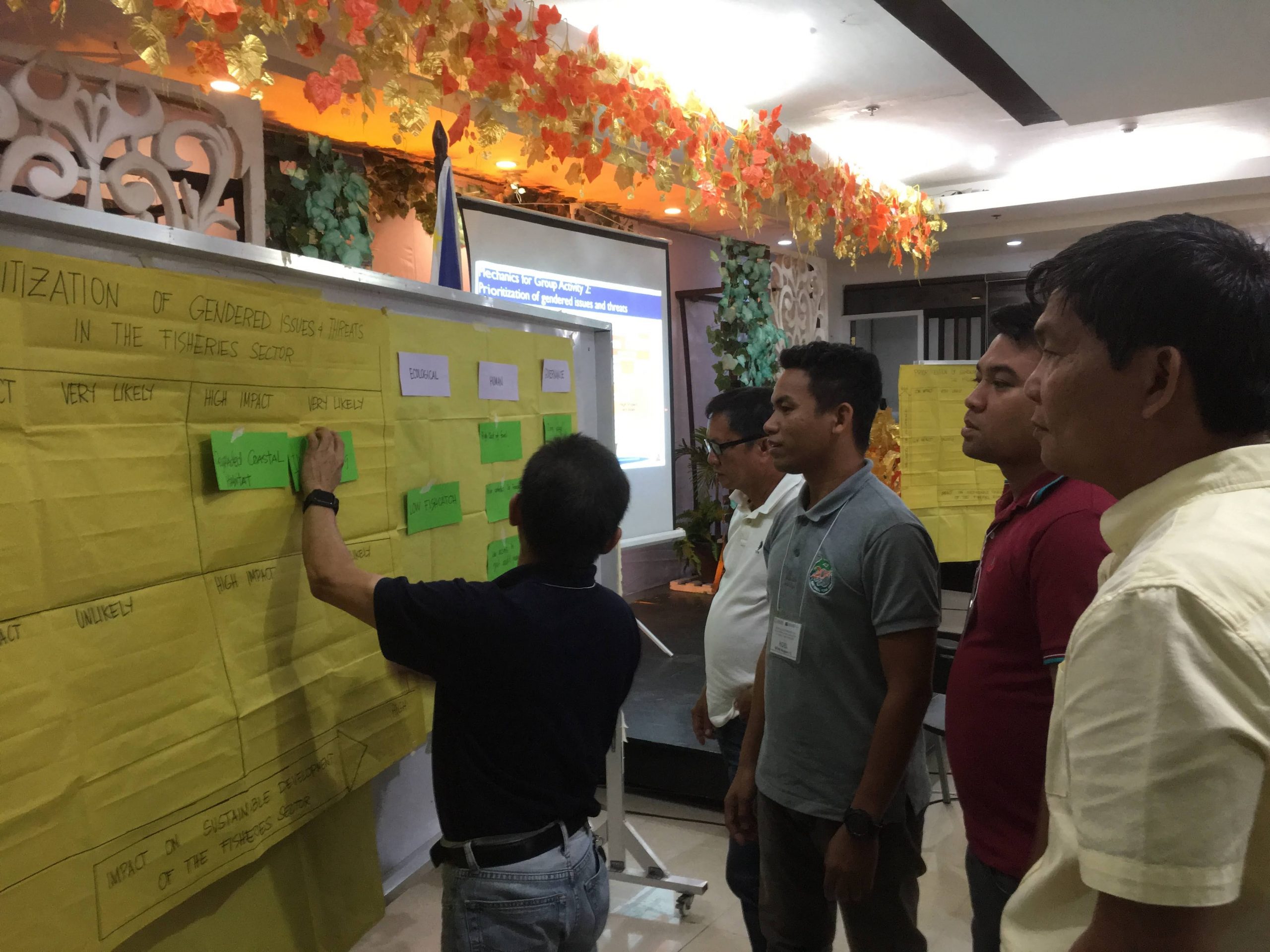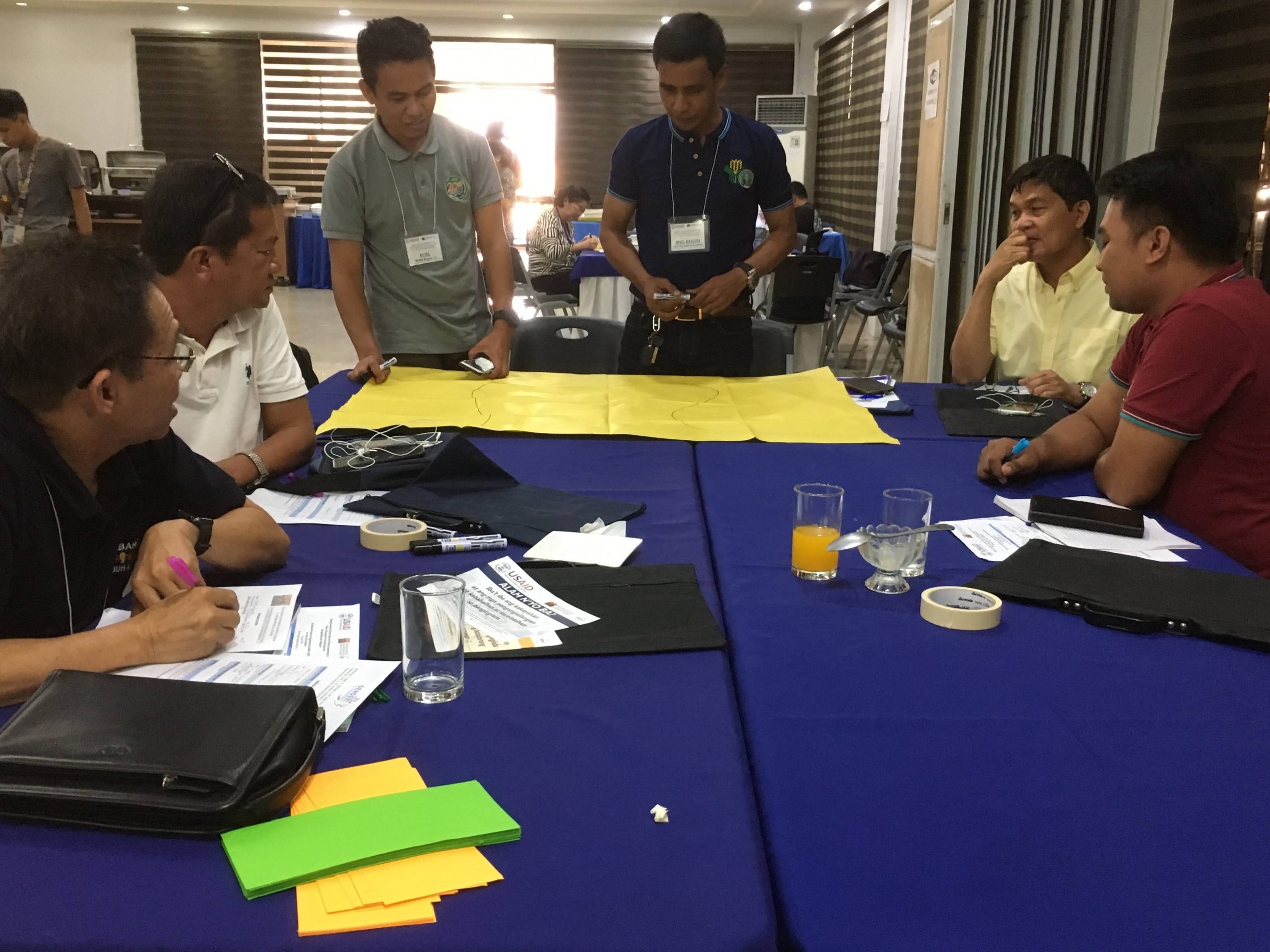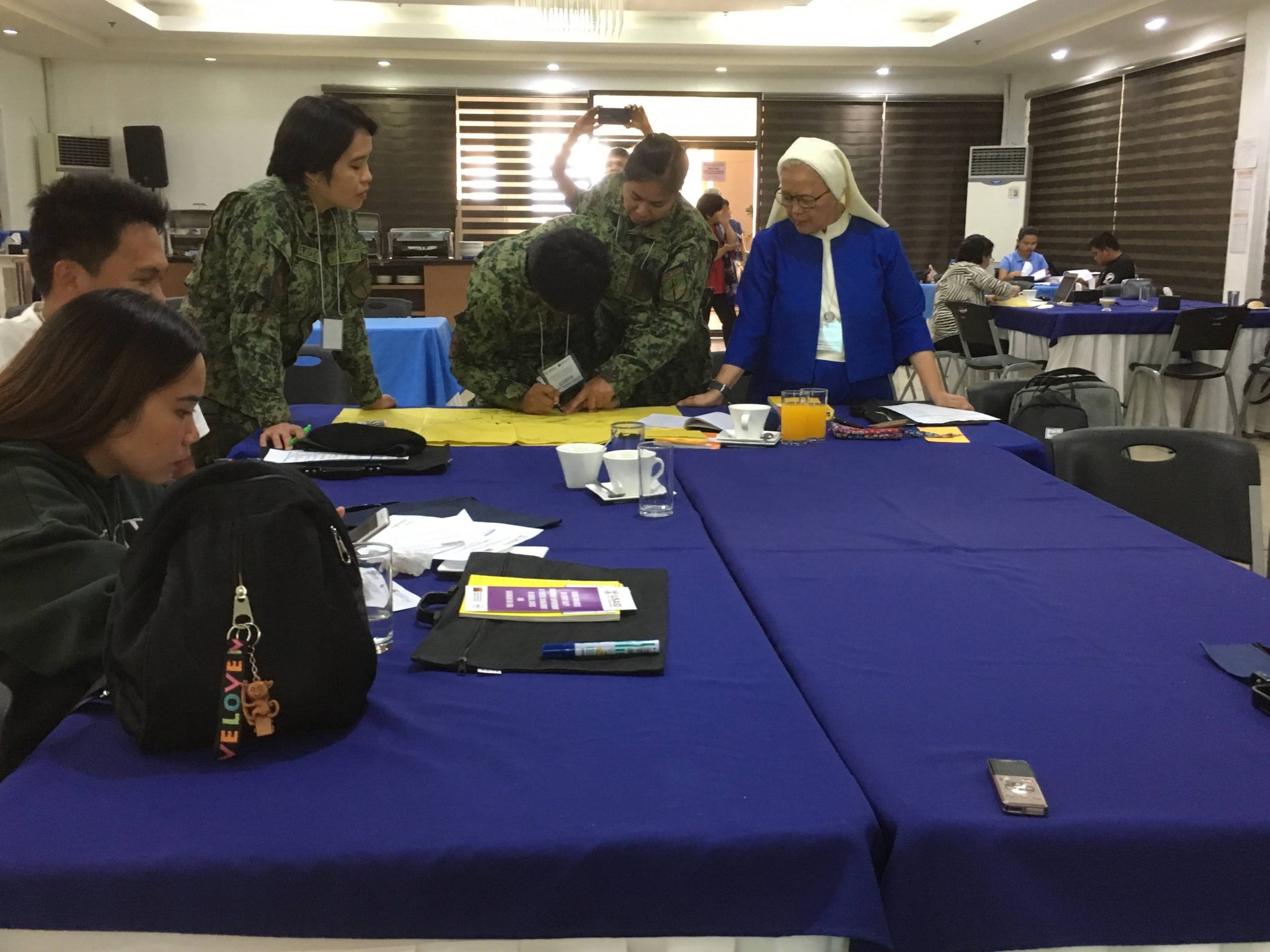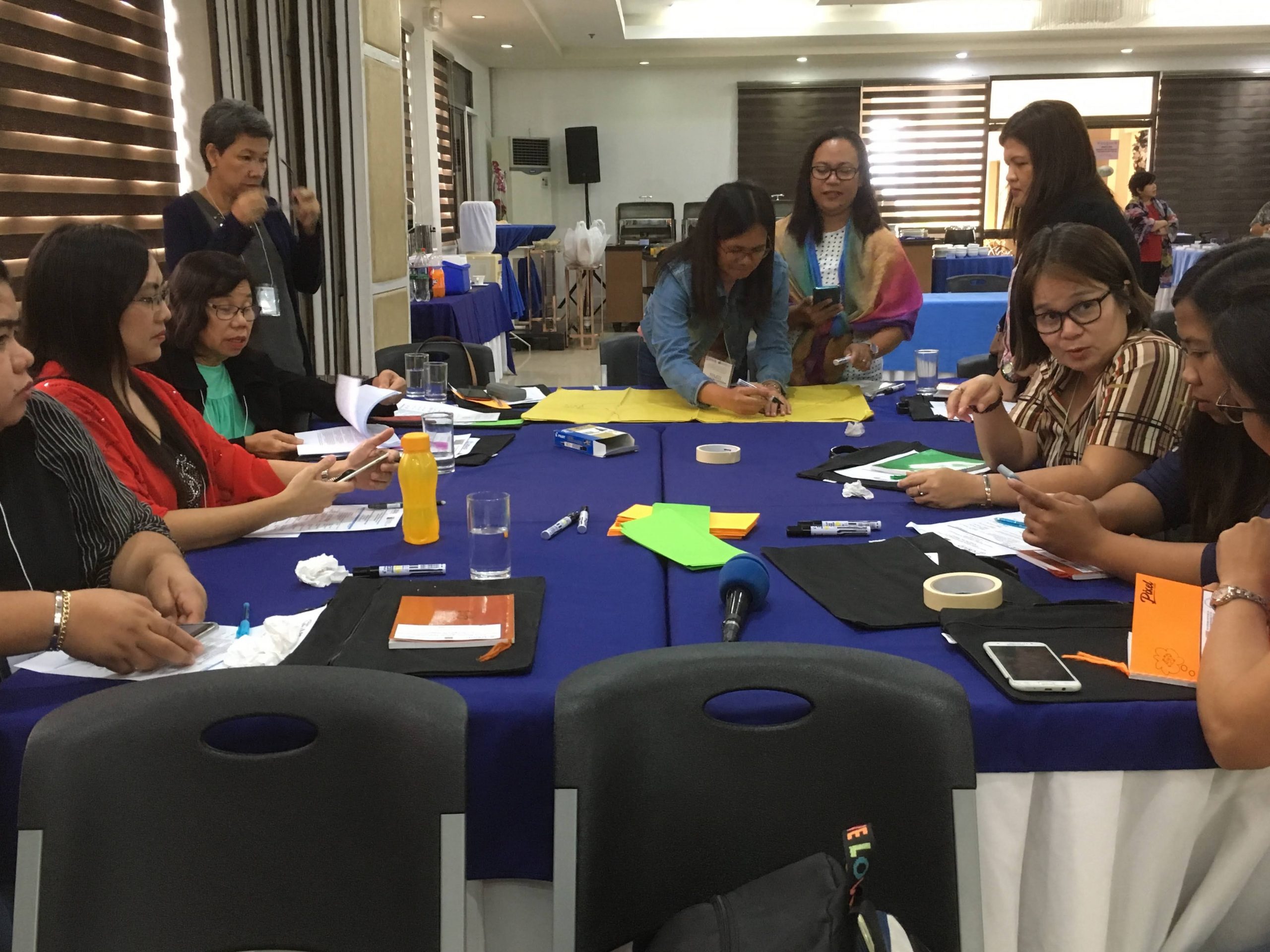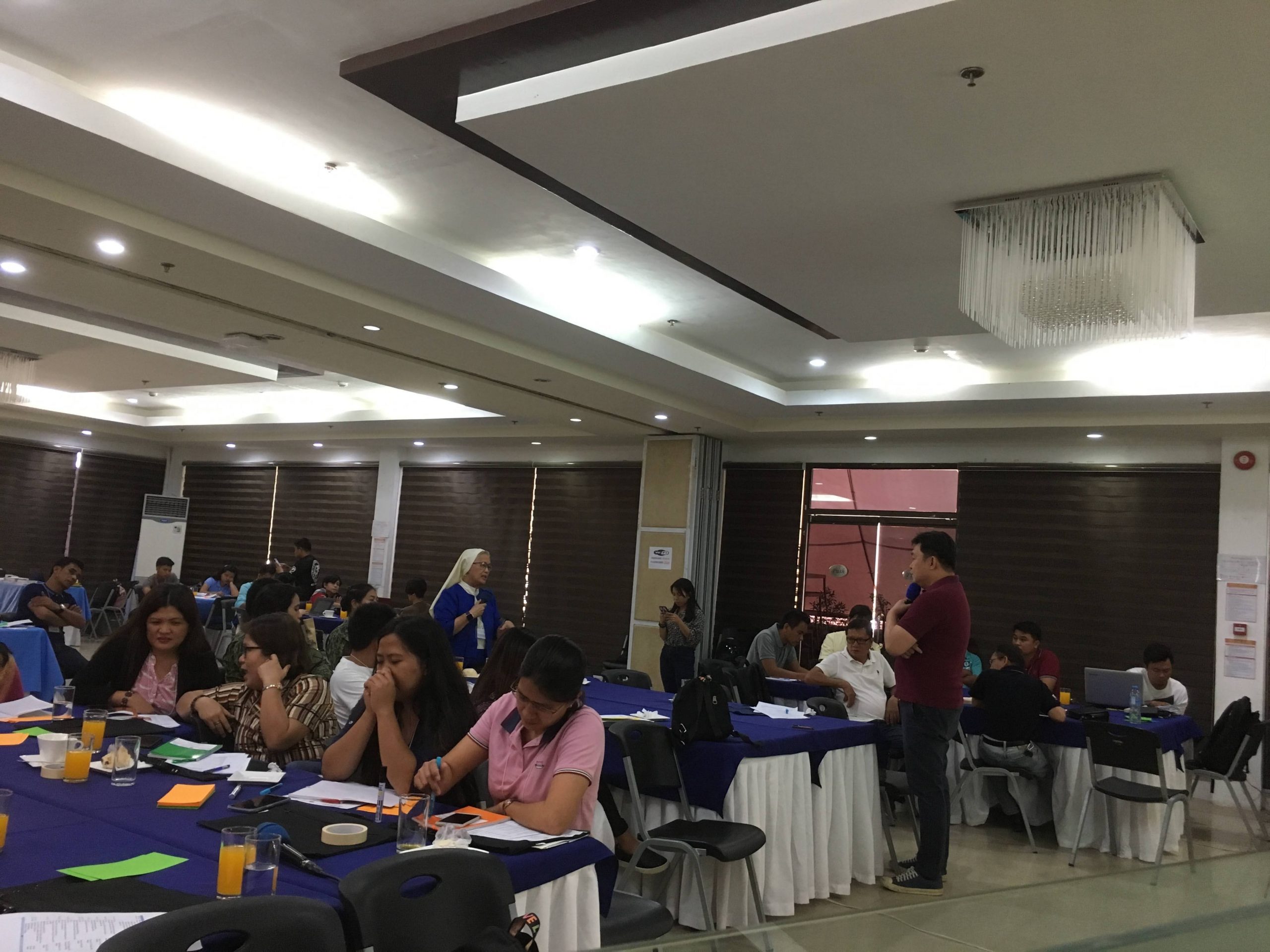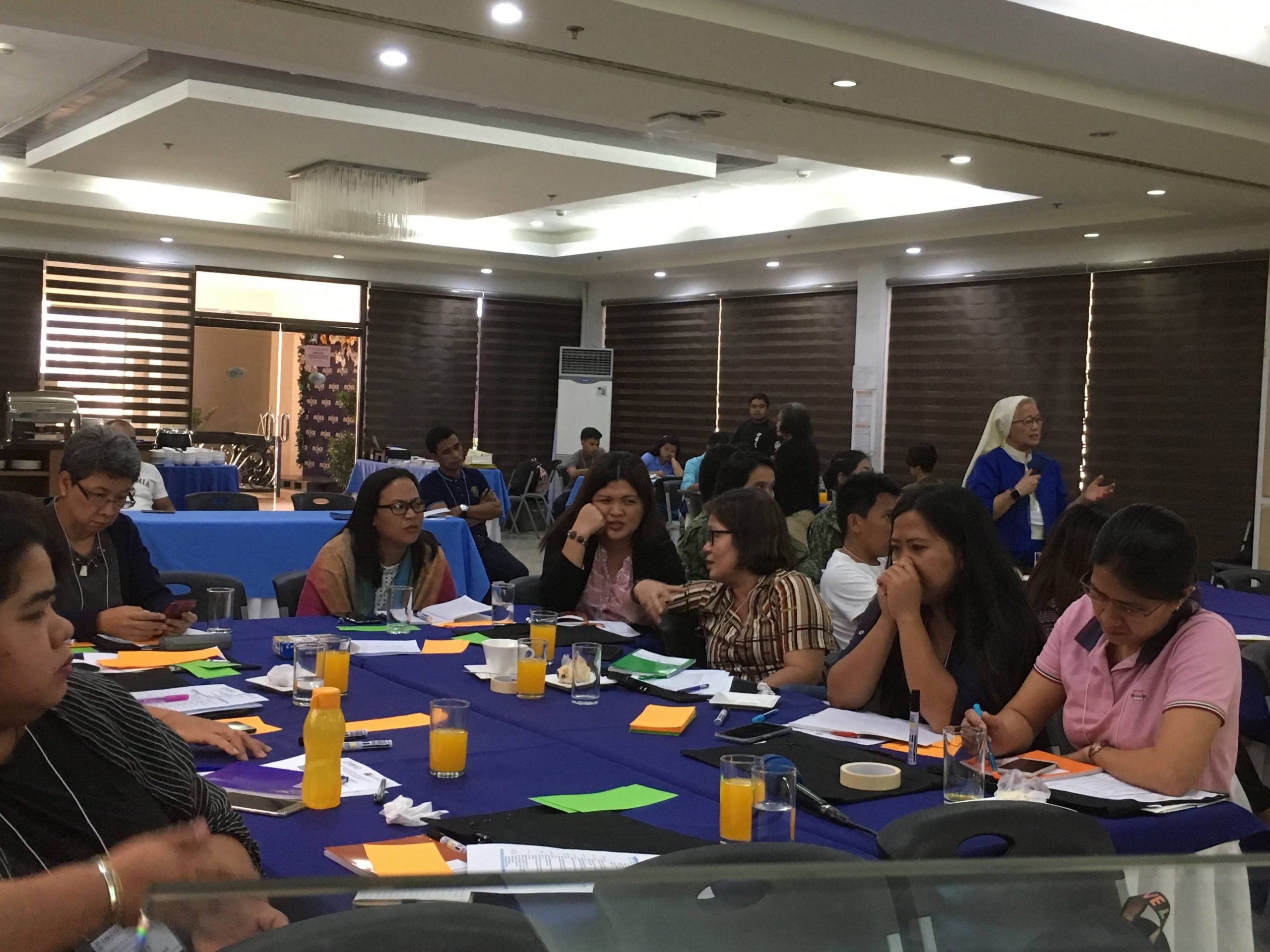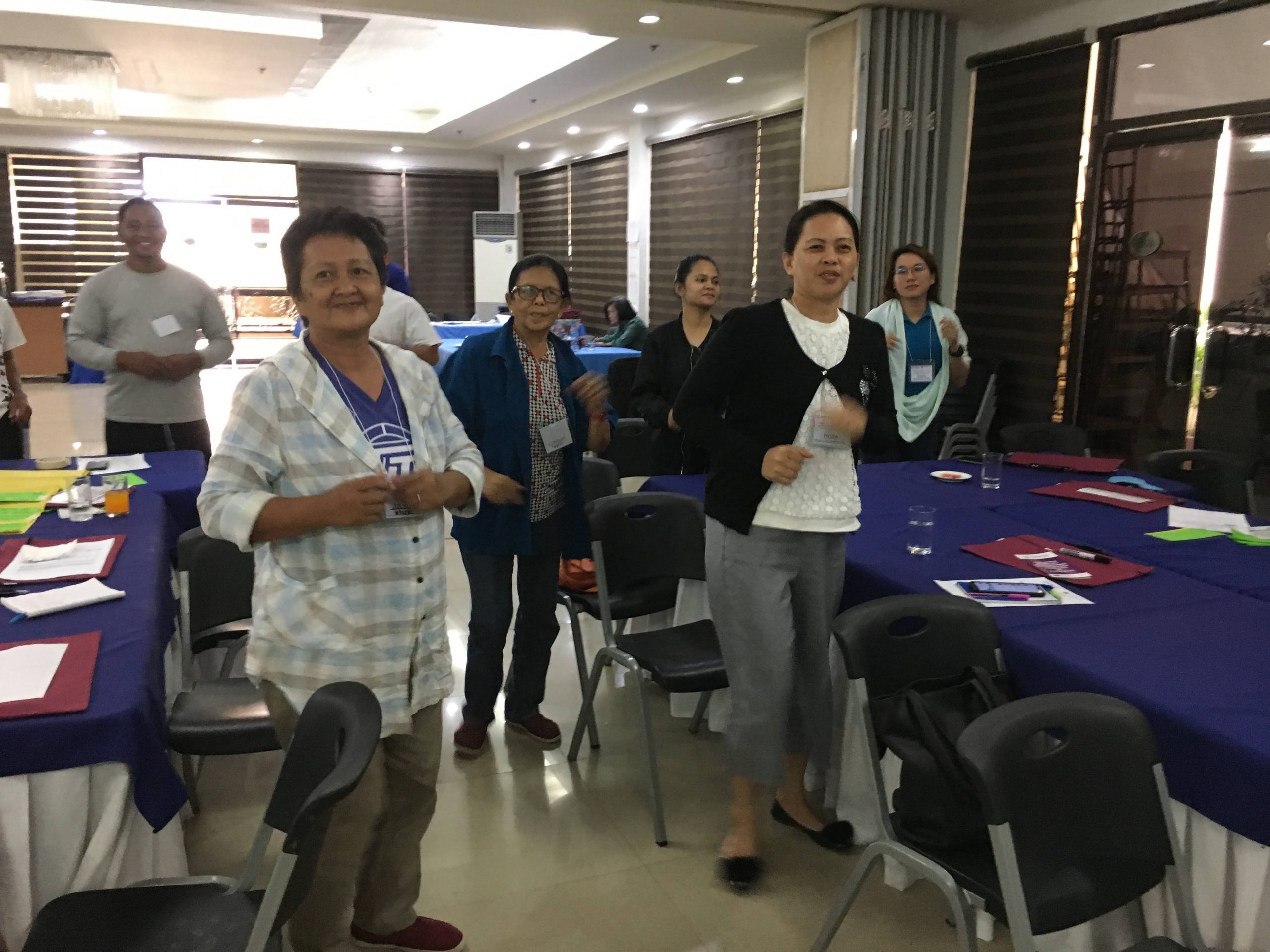The gender interventions aim to address observed inequalities that impede the maximum participation of women in the tuna fisheries value chain. Without the women in the scheme of things, there will never be inclusiveness of the development of the tuna fisheries sector.
Strengthening the capacity of women who are working in local fisheries value chain is important for them to effectively engage in the implementation of Ecosystem Approach in Fisheries Management (EAFM) and electronic Catch Documentation and Traceability (eCDT). WINFISH takes action to address illegal, unreported and unregulated (IUU) fishing through gender equity and women empowerment.
Raising Gender Awareness and Gender Equity:
Best Practices
Fostering gender-responsive governance through gender-responsive legal frameworks
- Development of criteria to check the gender-responsiveness of existing policies and legal documents on fisheries.
- Drafting of gendered legal instruments: proposed amendments for the inclusion of fisheries in the Gender and Development Code, and the inclusion of gender in the Fisheries Code of General Santos City.
- Development of gender responsive Monitoring and Evaluation tools to capture progress and outcomes of the gender interventions.
- Proposed Amended GAD Ordinance
- Proposed Amended Fisheries Code of General Santos
The Proposed Amendments to the Gender and Development Ordinance and the Fisheries Code of General Santos:
Raising awareness of gender equity and women empowerment in fisheries through gender-sensitive knowledge products
- Engagement of identified gender champions who contribute to the promotion of gender equity and women empowerment in fisheries.
- Sharing of stories on women’s journey towards gender empowerment in online platforms and multimedia.
- Development and dissemination of gender advocacy materials (e.g., comics, videos, brochures, flyers, magazine, message Tshirts, posters) to effectively communicate gendered EAFM and eCDT.
- Documentation of success stories in the learning site, including best practices in promoting gender equity and women empowerment in fisheries management.
Animated Video:
Magazine on Gender Champions:
Empowering stakeholders in fisheries through gendered training and capability development
- Development of a module on Gendered Ecosystem Approach to Fisheries Management (EAFM) and electronic Catch Documentation and Traceability (eCDT), a handbook for facilitators and implementers and stakeholders.
- Conduct of Orientation sessions on engendering EAFM & eCDT or tuna value chain players and enablers, as well as for facilitators on engendering EAFM and eCDT plans, programs and activities.
Ensuring sustainability of raising awareness of gender equity and women empowerment through linkages, networks, and partnerships
- Establishment of a gender network composed of tuna value chain players and enablers representing academe, government agencies, local government units, and non-government organizations.
- Creation of a gender online platform linked to four social media websites of partner institutions for wider networking space.
- Forging of partnership agreements with local institutions such as the Bureau of Fisheries and Aquatic Resources (BFAR) Region XII, and the Mindanao State University (MSU)-GenSan.
